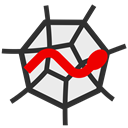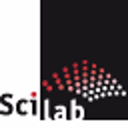Uncovering the Best ScicosLab Alternatives for Scientific Computing
ScicosLab, a software package providing a multi-platform environment for scientific computation, has been a valuable tool for many. Based on the official Scilab 4.x distribution, it integrates the powerful Scicos modeling and simulation tool along with various other toolboxes. However, as with any software, users often seek alternatives for diverse reasons, including specific feature requirements, platform preferences, or a desire for different communities and ecosystems. This article explores the top alternatives that can seamlessly replace ScicosLab in your scientific computing workflow.
Top ScicosLab Alternatives
Whether you're looking for open-source flexibility, commercial support, or specialized functionalities, a range of excellent ScicosLab alternatives are available to meet your scientific and engineering needs. Let's dive into some of the most prominent contenders.

GNU Octave
GNU Octave is a highly compatible and free, open-source alternative to MATLAB, making it an excellent choice for those transitioning from ScicosLab or similar environments. It runs on Mac, Windows, Linux, and BSD, offering broad platform support. Its compatibility with MATLAB syntax means a relatively low learning curve for many users, and it even includes features like ANOVA tests.

MATLAB
MATLAB is an enterprise-class commercial computing environment and programming language renowned for numerical computation. Available on Mac, Windows, Linux, Web, Android, iPhone, and iPad, it offers extensive platform versatility. Its robust feature set, including Simulink for model-based design, batch plotting, and an embedded debugger, makes it a powerful alternative for complex scientific and engineering tasks, often exceeding ScicosLab's capabilities.

R (programming language)
R is a free and open-source software environment specifically designed for statistical computing and graphics. As a GNU project available on Mac, Windows, Linux, and BSD, it's a strong ScicosLab alternative for data analysis, statistical modeling, and visualization. Its key features include automatic data loading and powerful data mining capabilities, making it ideal for researchers and statisticians.

Sage
Sage is a free, open-source mathematics software system licensed under the GPL, making it a comprehensive ScicosLab alternative for a wide range of mathematical tasks. It integrates the power of many existing open-source packages into a common Python-based interface. Available on Mac, Windows, Linux, and Web, Sage is particularly strong in symbolic computation, offering a unified environment for various mathematical domains.

SciPy & Numpy
SciPy and NumPy are essential open-source libraries for mathematics, science, and engineering within the Python ecosystem. They provide fundamental packages for numerical computation and scientific computing. Being free and open-source, these libraries run on Mac, Windows, and Linux, making them a flexible and powerful ScicosLab alternative for users who prefer a Python-centric workflow.

Scilab
Scilab itself, the base for ScicosLab, is a robust free and open-source scientific software package for numerical computations. It provides a powerful open computing environment for engineering and scientific applications and is available on Mac, Windows, and Linux. For users who appreciate ScicosLab's foundation but seek a more direct, perhaps updated, version of the core Scilab experience, this is a natural and excellent alternative.

Spyder
Spyder (formerly Pydee) is a free, open-source Python development environment that provides MATLAB-like features in a simple and lightweight package. Available on Mac, Windows, and Linux, Spyder is an ideal ScicosLab alternative for those who want to leverage the power of Python for scientific computing. Its integrated development environment (IDE) features, specifically for Python, make it highly efficient for coding and debugging.

Julia
Julia is a high-level, high-performance dynamic programming language specifically designed for technical computing. With syntax familiar to users of other technical computing languages, it's a compelling free and open-source ScicosLab alternative. It runs on Mac, Windows, and Linux, boasting features like automatic JIT compilation on code change, parallel computing, and a compiled language nature for speed.

Xcos
Xcos is a graphical editor within the Scilab ecosystem designed for modeling hybrid dynamical systems. As a free and open-source tool available on Mac, Windows, and Linux, it directly addresses the modeling and simulation aspect that ScicosLab users value. Xcos allows users to design, load, save, compile, and simulate models, making it a direct and powerful alternative for the Scicos component of ScicosLab.

python(x,y)
Python(x,y) is a free, open-source scientific and engineering development software suite for numerical computations, data analysis, and data visualization, all based on Python programming. Primarily available on Windows, it bundles various Python libraries and tools. For users seeking a comprehensive, pre-packaged Python environment that mirrors the scientific computing capabilities of ScicosLab, python(x,y) is a strong contender.
The landscape of scientific computing software is rich and diverse. While ScicosLab has served its purpose admirably, these alternatives offer varying strengths in terms of features, community support, and licensing. We encourage you to explore these options, test them out, and find the best fit that aligns perfectly with your specific project requirements and preferences for scientific computation and simulation.